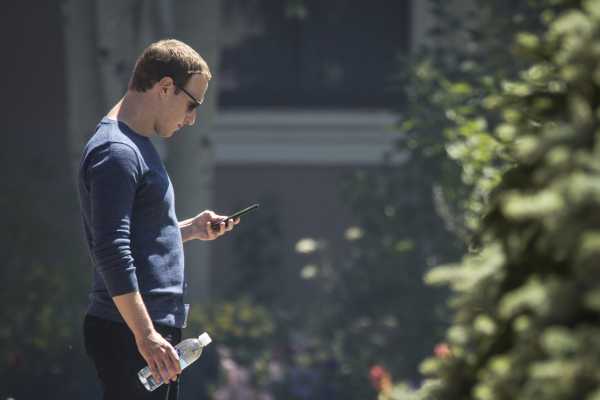
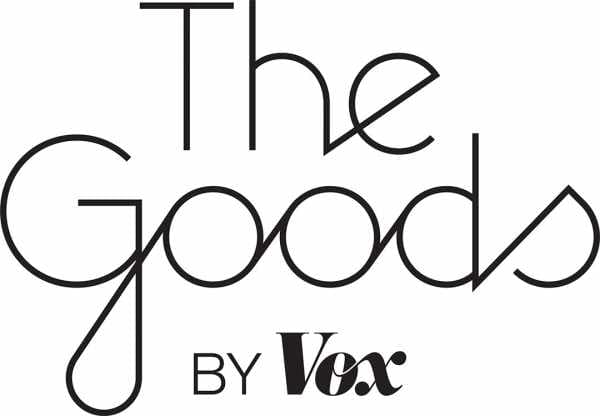
It’s been almost two decades since the last major trustbusting case in the United States. When will regulators come for the new Silicon Valley giants?
Tim Wu, in his book The Curse of Bigness, which is a cool 160 pages and politely holds the reader’s hand through about 200 years of American economic policy and practice, argues that the time is now, “to control economic structure before it controls us.”
We need to break up Facebook, undoings its acquisitions of Instagram in 2012 and WhatsApp in 2014. Then we should take on Google and Amazon, the airline industry, the beer industry, all these concentrations of wealth and political power that have enabled what could be called a second Gilded Age — which sounds nice but isn’t.
“As that era has taught us,” Wu writes. “Extreme economic concentration yields gross inequality and material suffering, feeding an appetite for nationalistic and extremist leadership.”
“Extreme economic concentration yields gross inequality and material suffering, feeding an appetite for nationalistic and extremist leadership”
Wu is best known for coining the term “net neutrality” and arguing that it is as crucial to democracy as the First Amendment. He also served as a senior adviser to the Federal Trade Commission from 2011 to 2012, when Facebook bought Instagram and when Google was averaging an acquisition per week, and he’s blunt about the decisions made: “I think we blew it,” he told me. “There’s a bad habit in Washington where you make a mistake and then you pretend it was a good decision. I think we should admit the mistake and redo it.”
The Curse of Bigness, out next week through Columbia University’s longform journalism imprint, contains some ideas for how to fix things (and please do read the whole thing!), but for now, I spoke to Wu to get the simple version that you can take home to Thanksgiving dinner with you.
This interview has been edited for length and clarity.
The book talks about Amazon and Google and Facebook. To narrow things a little bit, do you have one that you think is the most concerning or the most urgent to break up?
Facebook is the most concerning. I would break up Facebook — the social harm is clear, and the benefits of Facebook staying as one entity aren’t really clear. They’re a good example of what the book is called, The Curse of Bigness.
What is so bad about Facebook being so big?
Well, I think because they face no serious competition, there’s a couple problems. They’ve been able to get away with unchecked privacy abuses, they’ve been undisciplined in how they’ve dealt with advertisers. They’ve warped politics, they’ve been manipulative, they’ve breached privacy too often. A lot of this has to do with the fact that they haven’t faced effective competition. They’re … it’s not too big to fail, it’s too big to be tolerated.
How much does public perception of a company matter when it comes to advancing an antitrust case? I mean, surveys have shown that a pretty solid percentage of Americans don’t like Facebook, they think it’s bad for society. But people love Amazon — your average person thinks Amazon is great, “they deliver what I need, quickly.” Does that play a part?
I don’t think law enforcement should be a popularity contest. But there’s a reason that the airline industry and pharmaceutical industries are incredibly unpopular. They’re bad industries, they deserve their bad reputations and they mistreat consumers. I think Facebook is pretty much in the same camp.
For companies like Google and Amazon, and I’m not saying they should get a free pass, but at least they have an argument as to why they need to be so big. I may disagree with it, but they have delivered a lot to a lot of people. Google Maps, and so on.
Facebook … I had friends before Facebook. I saw pictures of people’s children. It doesn’t provide nothing, but it’s not like they invented friends. Those other [companies] save you a lot of time and effort and money, but Facebook wastes your time and effort.
“[Facebook is] not too big to fail, it’s too big to be tolerated”
But yeah, it is dangerous for governments to get way out ahead of public opinion. For democracy, it matters — people want law enforcement to do things roughly that they can understand or agree with.
What would have to happen in order for Facebook to ever even be challenged in this way — for this to even be on the table?
I think it is on the table.
How would it happen? The Justice Department or the Federal Trade Commission or a state would suggest that the acquisitions of WhatsApp and Instagram were illegal when they happened, and that they were anti-competitive mergers. They could file a suit in federal court, asking for the court to break up Facebook, to dissolve Facebook, to break off Instagram and WhatsApp again.
That doesn’t solve all of the problems but it’s a start. It would give Facebook two serious competitors who, I think, could be more protective of privacy. WhatsApp when it was born was very privacy-protected; the reason the founders left was because they were so upset about Facebook’s privacy practices. Having two kinder, gentler, less privacy-invasive, less troll-friendly alternatives would be good for the public.
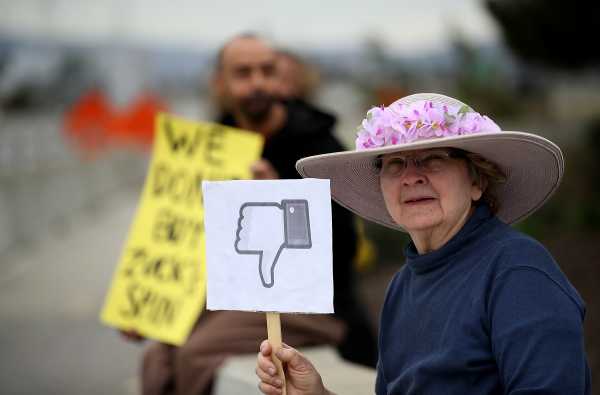
Why do you think nobody raised any alarm bells in the first place, when Facebook bought WhatsApp or when Google bought YouTube or when Amazon bought Zappos or what have you?
I was in the government [at the time], I share in some of the blame. I think that there was a kind of deferential attitude toward Silicon Valley at the time, you know, they were the golden goose. They had reinvented economics, reinvented business as we knew it. When Facebook bought Instagram, nobody really said, “Oh, they’re just buying out their biggest competitor” — and it’s illegal to buy your most dangerous competitors. People were like, “Oh, they don’t charge any money, we don’t really understand how this works.” It was not a courageous moment.
Now I think, six years later, it’s much more obvious that they were just buying out their biggest competitor. In the case of WhatsApp, they paid $19 billion, and it was like, “Why are they paying that much?” But you look back in retrospect and you know, WhatsApp had been chasing the same advertising as them and a monopoly profit there is worth way more than what they paid.
I think we blew it, honestly; there’s no better phrase. We were starry-eyed and seduced by the power of the new. There’s a bad habit in Washington where you make a mistake and then you pretend it was a good decision. I think we should admit the mistake and redo it.
“I think we blew it, honestly; there’s no better phrase. We were starry-eyed and seduced by the power of the new.”
There’s been a little chatter about Amazon coming into the ad game too, and taking a piece of that pie, and Google is also dependent on Amazon Web Services for a lot of things. To me it seems like they’re going to eat everybody. Like, they should be scariest.
Yeah, I don’t think that’s trivial at all. You talk about web services and that sounds weeds-y but it’s pretty much becoming everything. When it comes to Amazon and Google, it’s a question of, “What won’t they do? What won’t they try to take on?”
I think it’s provoked profound questions about what kind of economy you want. Do you really want an economy where you have a small handful of firms, maybe even two firms, running everything?
In some ways, that can seem like a really good idea. But I think in the longer run, this is the curse of bigness — even the greatest companies, they start to stagnate and kind of rot a little bit. With such massive scale, it’s really hard to keep intact that spirit you had when you were this young, darling startup. These companies just get oversized.
There was a time when people thought GM was the most efficient, marvelous company on the face of the earth. And you know it probably was in the 1950s. But it took, like, three decades to adjust to the Japanese competition. I’m afraid that will be our path.
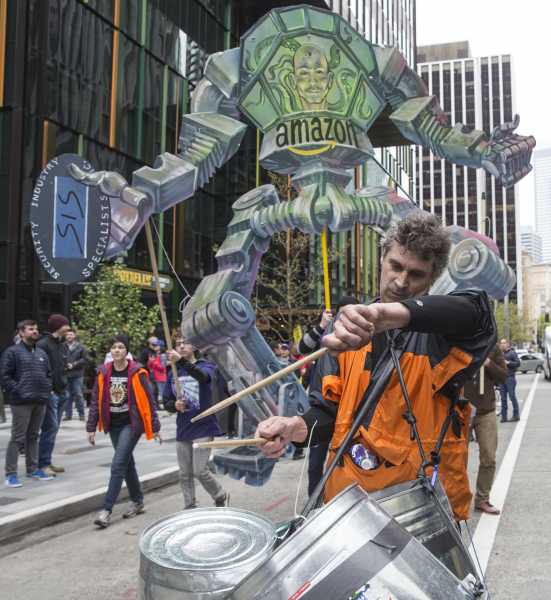
If you look at the tech sector, there’s a big lesson here in tech in the past 40 years. America chased down IBM in antitrust, broke up AT&T into small pieces, and we had 30 to 40 years of wave after wave after wave of new companies that came in one after the other — Microsoft, Dell, Gateway, AOL, Compuserve, Google, Amazon. We had 30 years of fierce competition.
Meanwhile, Europe and Japan have the same big firms they had in the ’70s. And I think this is how American reclaimed its global tech supremacy and frankly economic supremacy, just by breaking them up and mixing the pot again.
And so, I’m afraid we’re going to end up with [just] Google and Amazon, if we let them stick around for 40 years; if we don’t stir the pot the way we stirred it with IBM, I think we will pay for it.
The Reagan administration going up against IBM — that went on for years and years and years and cost millions of dollars. Facebook is so big and it has so much money and I feel like every time it comes up — like when Zuckerberg was testifying before Congress — it’s so painfully obvious that many of these lawmakers just have no idea what the internet even is.
Do you think it’s likely that something like that would play out again? Just a waste of money and a decade of time?
Well, my view of the IBM case is that people at the time thought it was a bad idea but in retrospect it turned out to be a good idea. My view in the book is that we should not just focus on what the cost to bring the case is, even if it costs a million dollars to bring, because what we’re talking about is billions or even a trillion dollars value. The stakes are massive.
That’s what I say in the book: We can’t get obsessed with pennies when we’re talking about dollars, and we can’t get obsessed with millions when we’re talking about billions and billions.
“Nobody is going to start in the shadow of Facebook and get anywhere”
You said that Apple wouldn’t exist without the IBM case.
Yeah, I did say that. The case against IBM took 13 years and we didn’t get a verdict but in that time, there was the “policeman at the elbow” effect. IBM was once an all-powerful company. It’s not clear that we would have had an independent software industry, or that it would have developed that quickly, the idea of software as a product, [without this case]. That was one of the immediate benefits of that excavation.
And then the other big one is that it gave a lot of room for the personal computer to get started, and the software that surrounds the personal computer — two companies came in, Apple and Microsoft. They were sort of born in the wake of the IBM lawsuit. You know they were smart guys, but people did need the pressure off their backs.
Nobody is going to start in the shadow of Facebook and get anywhere. Snap’s been the best, but how are they doing? They’ve been halted. I think it’s a lot harder to imagine this revolutionary stuff that happened in the ’80s. If IBM had been completely unwatched by regulators, by enforcement, doing whatever they wanted, I think IBM would have held on and maybe we’d still be using mainframes, or something — a very different situation.
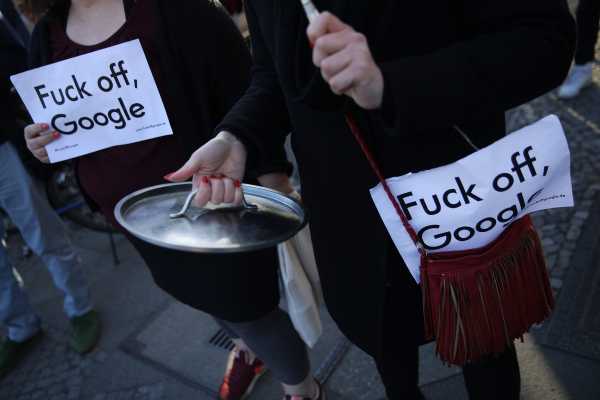
This is kind of a goofy question, but moving away from the big three, what are five other monopolies that should be broken up?
One is the pharmaceutical industry. It needs a lot more scrutiny; it’s a hotbed of anticompetitive practices and efforts to rip off the entire economy. Cable television: The cable industry enjoys an unregulated monopoly over 68 million Americans, and nobody is paying attention to that right now. They can do whatever they want. I would take another look at the airline industry, which I think was wrongly allowed to consolidate industry majors and has done nothing but become worse for flyers.
There are others that are more obscure, like the fertilizer industry. Most people have no idea about them, so they’re allowed to consolidate into three major global players. The global beer industry is now overconcentrated. Despite the success of craft beer, there’s been a mass consolidation of all the other beers.
I think we need a trustbuster; a serious trustbuster needs to be in the position of Theodore Roosevelt and actually get back into that mandate of trustbusting across industries. A lot of industries are at extreme, unprecedented levels of concentration right now.
Well, I guess the last question is just, are you optimistic?
Of course I’m optimistic. I put my bet on the American republic. We’ve had this problem before, during the first Gilded Age. We’ve also flirted with extreme government before. I think the republic has the capacity for fixing itself and it really blunders around, but it remembers its traditions. Going back to the founding, America has a very strong anti-monopoly tradition, and I think the country has to remember who it is.
Further reading: the curse of Silicon Valley bigness
The Verge’s Adi Robertson on how the antitrust battles of the ’90s set the stage for today’s tech giants
Vox’s Sean Illing on why “fake news” is an antitrust problem
Vox’s Matt Yglesias on how Europe’s antitrust laws could challenge Amazon
The Verge’s Russell Brandom on the monopoly-busting cases against Google, Amazon, Facebook, and Uber
Sourse: vox.com





